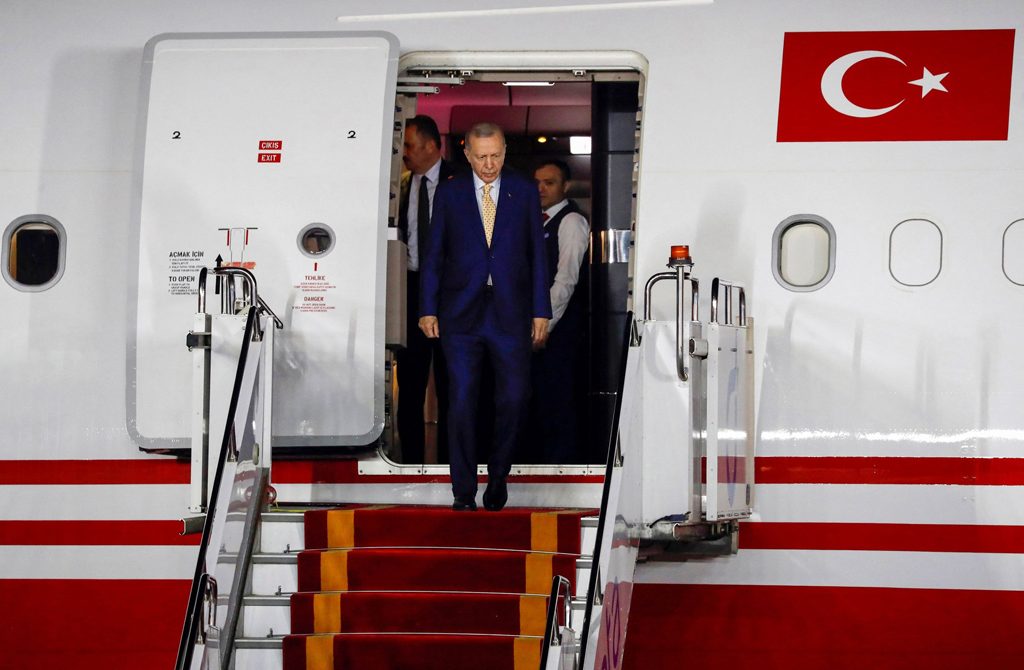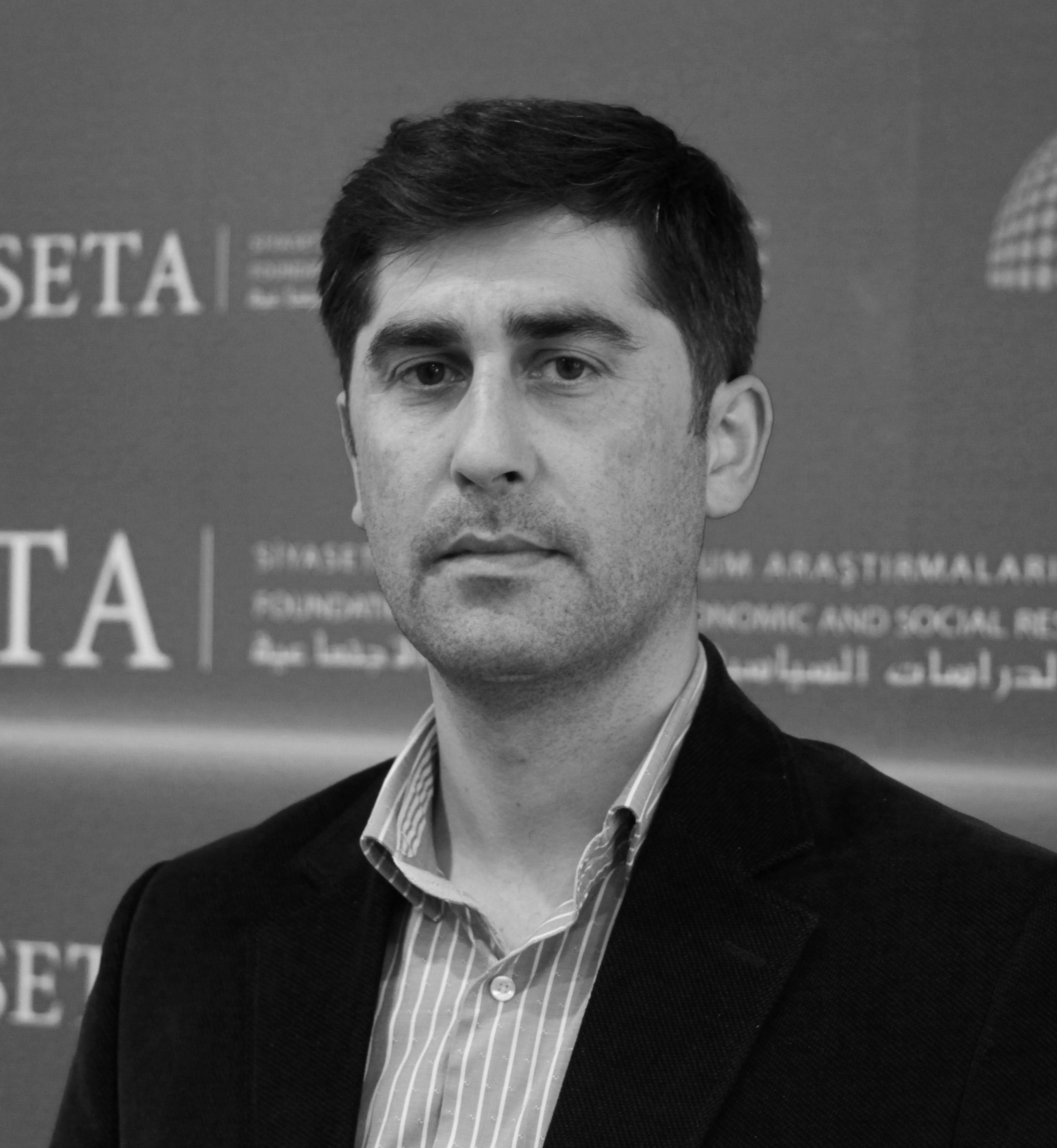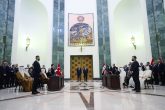President Recep Tayyip Erdoğan’s recent visit to Iraq could mark the beginning of a new chapter in the longstanding relationship between Türkiye and Iraq. During his visit to Baghdad, Türkiye and Iraq signed a strategic framework agreement that addresses a variety of issues, ranging from security to economic cooperation. This agreement represents the culmination of nearly a year of productive high-level discussions between the two countries. Furthermore, President Erdoğan’s first visit to Iraq since 2011 has established new connections between Türkiye, Iraq, the United Arab Emirates (UAE) and Qatar, enhancing the region’s geo-economic landscape.
During his visit to Baghdad and Irbil, President Erdoğan reaffirmed Türkiye’s strategic priorities in the region and its commitment to strengthening diplomatic ties. The agreement forged during this visit underscores Iraq’s significance in Turkish foreign policy, particularly following the May 2023 elections. Traditionally, Ankara has viewed its relationship with Iraq through the lenses of security and economic interests. However, it is now adopting a more comprehensive and holistic approach. Recent regional developments and military tensions between Israel and Iran have further underscored the critical importance of the relationship between Baghdad and Ankara.
The visit can be viewed as the culmination of extended negotiations and intricate diplomacy. Over the past eight months, Ankara and Baghdad have engaged in crucial discussions, meeting with all relevant stakeholders and addressing all issues at hand. Foreign Minister Hakan Fidan has made two significant visits to Iraq in the last year, engaging with various parties. During this period, intelligence diplomacy has been active, with Ibrahim Kalın orchestrating sensitive discussions in Iraq focused on security matters. The current scenario presents significant opportunities to both resolve existing issues and elevate bilateral relations to a strategic level. However, it is clear that not all issues have been fully resolved. Numerous challenges remain, particularly in combating terrorism, indicating a long road ahead.
New framework
The recent visit by President Erdoğan and the ensuing diplomatic engagements have highlighted three key principles underpinning the Türkiye-Iraq relationship. The first principle is the holistic approach. Both Ankara and Baghdad are now adopting a more holistic approach to their relationship. While Türkiye has traditionally focused on security and economic aspects, it is now considering other crucial issues in Iraq from a strategic perspective. Historically, Türkiye’s policy toward Iraq was primarily viewed through the lenses of its interactions with Irbil and Baghdad – this dual approach was mirrored by the Baghdad administration as well.
The second principle is sustainability. Both nations are keen to avoid the disruptions that have marred their historical interactions. The Al Sudani administration in Iraq is committed to a consistent policy aimed at the institutionalization of the Iraqi state, while Ankara views the formation of a comprehensive and inclusive institutional relationship as essential for sustaining the strategic bonds between the two countries. This emphasis on sustainability signals a shift toward long-term stability and cooperation.
The third principle of this new era in Türkiye-Iraq relations is a focus on problem-solving and creating mutually beneficial outcomes. The comprehensive strategic agreement signed during President Erdoğan’s visit marks a significant advance in addressing longstanding issues. Notably, there has been a positive shift in the approach to combating terrorism, a critical concern for both nations, reflecting improved collaboration between Baghdad and Ankara. Additionally, for the first time, a serious framework has been established to tackle the longstanding water dispute between the two countries. Both Baghdad and Ankara recognize the critical importance of the water issue and appear committed to taking concrete steps to resolve it. This proactive and cooperative stance underlines their dedication to resolving key challenges and fostering a win-win scenario for both sides.
Comprehensive strategic agreement
During his visit to Baghdad, President Erdoğan met with Iraqi President Abdullatif Rashid and Prime Minister Mohammed S. Al Sudani. This meeting led to the signing of 26 cooperation agreements covering a wide range of sectors including security, economy, trade and education. These agreements underscore a deep commitment to collaborative efforts across various domains. At the joint press conference, Presidents Erdoğan and Al Sudani emphasized their dedication to indivisible security and mutual stability, highlighting that the cooperation is grounded in shared and strategic interests. This set of agreements demonstrates the robust partnership between Türkiye and Iraq, aiming to enhance both countries’ prosperity and security.
The visit also spotlighted the Development Road Project, an ambitious economic collaboration between Türkiye and Iraq. This initiative envisions a rail and road network stretching from the Persian Gulf to the Ovaköy border in Türkiye. By offering an alternative route for regional supply and transport chains, the project is set to significantly enhance the strategic value of both countries. Additionally, it bolsters regional partnership opportunities and lays a strong foundation for achieving consensus on Iraq’s role in the region –a development not seen for quite some time. The project’s endorsement by Qatar and the UAE further underscores Iraq’s growing importance in regional politics, highlighting its potential as a central player in Middle Eastern economic and diplomatic arenas.
One of the most significant aspects of President Erdoğan’s visit is the emphasis on counterterrorism efforts. Türkiye’s strategic partnership with Iraq presents a formidable opportunity to exert considerable military pressure on the PKK. The military cooperation between the two countries is a key element in shaping regional security dynamics. Notably, the restriction of the PKK’s mobility and Iraq’s recognition of the PKK as a terrorist organization underscores the depth of security collaboration between Türkiye and Iraq.
However, the specifics of how joint military operations against the PKK will unfold remain to be seen. During his press conference in Baghdad, President Erdoğan highlighted that Iraq’s formal designation of the PKK as a terrorist group is a crucial milestone, paving the way for coordinated military efforts. This visit has bolstered the prospects for comprehensive military action by Türkiye, signaling a readiness to escalate the fight against the PKK. The primary objectives are to neutralize the PKK in northern Iraq and mitigate security risks to the Development Road project. Successfully countering the PKK could also strategically benefit Türkiye in its ongoing conflict with the YPG/PKK in Syria, potentially altering the security landscape in the region.
President Erdoğan’s visit to Irbil significantly underscores Türkiye’s goal to enhance its relations with the Kurdish Regional Government (KRG) of Iraq and to intensify cooperation in combating the PKK. Irbil holds strategic importance for Türkiye, and this visit serves to further solidify ties with the Kurdistan Democratic Party (KDP), which plays a pivotal role in the regional efforts against the PKK.
In addition, the diplomatic maneuvers preceding the visit contributed to the political isolation of the Patriotic Union of Kurdistan (PUK) in Sulaymaniyah, prompting a reassessment of its ties with the PKK. The climate in Irbil prior to the visit highlighted Türkiye’s vital role in promoting stability, security, development and economic growth in the region.
President Erdoğan’s visit could indeed represent a significant milestone not only for Türkiye-Iraq relations but also for broader stabilization and cooperation efforts across the Middle East. Amid ongoing regional conflicts, this diplomatic initiative underscores a deepening cooperation and mutual understanding between the two nations. Given Iraq’s strategic position as a microcosm of the Middle East, the sustained reconciliation and collaboration between Ankara and Baghdad are likely to yield benefits that extend well beyond their bilateral ties, positively impacting the region at large.
In conclusion, President Erdoğan’s visit to Iraq serves as a testament to Türkiye’s active and effective diplomacy in the region and its intent to enhance strategic interactions. The accomplishments stemming from this visit herald the start of developments that are poised to bolster Ankara’s influence in Middle Eastern politics.
In this article
- Opinion
- Abdel Latif Rashid
- Abdülkadir Uraloğlu
- Ali Yerlikaya
- Alpaslan Bayraktar
- Baykar Bayraktar TB2
- Development Road Project
- Fatih Kacir
- Fight against PKK
- Fight Against Terror
- Hakan Fidan
- Ibrahim Yumaklı
- Iraq
- Iraqi President
- Iraqi Prime Minister
- Kurdistan Regional Government (KRG)
- Mohammed S. Al Sudani
- Nechirvan Barzani
- Ömer Bolat
- PKK - YPG - SDF - PYD - YPJ - SDG - HBDH - HPG - KCK - PJAK - TAK - YBŞ
- Qatar
- Recep Tayyip Erdoğan
- TAI T129 ATAK Multi-Role All-Weather Attack Helicopter
- Turkish Agriculture and Forestry
- Turkish Defense Minister
- Turkish Energy Minister
- Turkish Foreign Minister
- Turkish Industry and Technology Minister
- Turkish Interior Minister
- Turkish President
- Turkish Trade Minister
- Turkish Transportation and Infrastructure Minister
- Turkish-Iraqi Relations
- Türkiye
- Türkiye-Iraq Relations
- United Arab Emirates (UAE)
- Yaşar Güler



